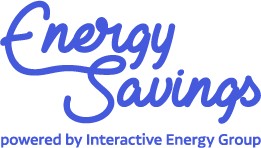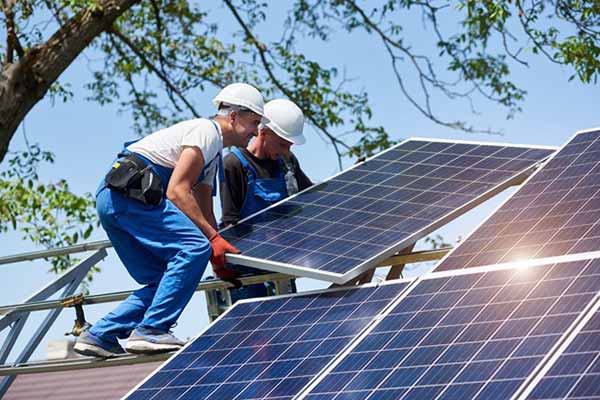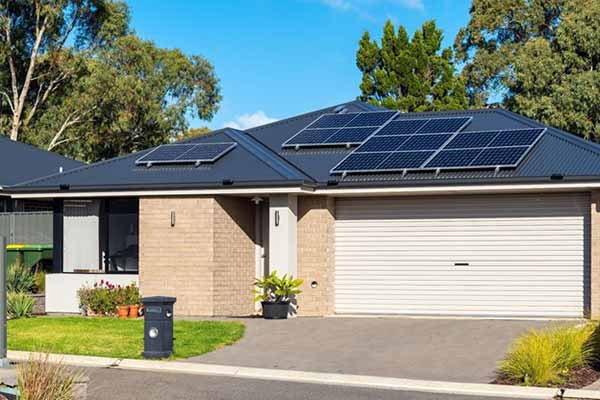Interest in solar energy is growing thanks to tax incentives and the increasing demand for clean energy. Still, you may wonder whether it’s best to go with a solar panel lease, a solar power purchase agreement, or to buy a solar power system.
In the U.S., the installed solar capacity of nearly 125 gigawatts is enough to provide renewable energy to power more than 20 million homes. Your home could be one, but what’s the best way?
Installing solar panels is a major decision that often presents questions. Clean energy benefits the environment, but what is the impact on your wallet? Do you have to purchase solar panels outright, or can you lease them?
In this article, we’ll look at solar panel leases, the benefits and the drawbacks of leasing solar panels, and the differences between leasing solar panels, solar power purchase agreements, and buying solar systems outright.
Is Leasing Solar Panels a Good Option?
The benefits of leasing solar panels depend on your situation. Many companies lease solar panels to homeowners, though the option won’t suit everyone. Nonetheless, leasing is one way to easily tap into potential savings and clean energy.
Solar panel leases can appeal to homeowners on a tighter budget. Many of these plans don’t require any money down. The company installs the panels, and you then receive a monthly, fixed-rate bill.
But you shouldn’t enter into a solar lease without first exploring your purchase options.
The starting costs of solar panels may be less than you think, especially when you factor in federal investment tax credits and local incentives. For example, Oregon residents may qualify for rebates of up to 60% of the installation costs.
Talk with your bank or credit union about your financing options, as you may be able to make the purchase with a low-interest home equity loan.
How Does a Solar Lease Work?
Like leasing a car, you’ll have a fixed monthly payment to the solar installer for your solar power system, but you will not own the solar panels.
You get to use the system, receiving the benefit of the panels’ solar energy and lowering your electric bill, but the system belongs to the installer.
Excess energy generated by the panels on your house will usually go back to your local utility — this is called net metering. Net metering isn’t always available with a solar lease (be sure to ask!), which would mean having to pay a small fee to stay connected to the grid via your local utility company. If your leased solar panels don’t generate enough electricity, you’ll get power from that same utility.
Having a solar lease means you’ll have a monthly lease payment but essentially no monthly electricity bill. There may be small fees that can’t be offset by solar power generation because you need to stay connected to the grid — just in case your panels don’t generate all the power you need.
If you received electricity from your utility company because the panels didn’t generate all the power you needed, you’ll need to pay for the kilowatt-hours you used.
For example, if your lease payment is $100, you’ll only pay $100 and nothing for electricity. However, suppose your utility company gave you power during that billing cycle (say $50 worth). In that case, you’ll have a lease payment of $100 and an electric bill payment of $50, bringing your total cost for electricity that month to $150.
Enter your ZIP Code and compare electricity rates
Solar lease contracts typically include a price escalator that reflects inflation in the cost of electricity. As a result, your lease payment will increase every year (typically 3-5%).
Solar leases have a lengthy rental period, ranging from 10-25 years (about the lifespan of solar panels). The solar panel company installs and then services the equipment as needed. You potentially benefit from lower energy costs but don’t own the panels.
When your contract ends, you can renew the lease, remove the panels, purchase the solar panels at market value, or buy them at a price agreed upon in your contract.
What Are the Pros and Cons of Leasing Solar Panels?
There are advantages and disadvantages to leasing solar systems. You’ll want to carefully weigh all your options before entering into any long-term solar lease agreements.
The Pros of Leasing Solar Panels
One benefit of leasing solar panels is that your household can have clean energy without paying big money upfront to purchase and install your system.
When leasing, you’ll work with one company. If you purchase solar panels, you’ll need to work with the company selling the solar panels and get solar financing (thus incurring a loan payment), unless you can do a cash purchase.
Leasing solar panels can lower your utility bills and leave you with one predictable amount for each month’s electricity costs.
You won’t be responsible for system maintenance or monitoring — your leasing company will handle all of that for you.
The Cons of Leasing Solar Panels
When you lease, rather than buy a solar power system, the leasing company gets the rebates, incentives, and federal tax credit for purchasing solar panels. Also, leasing solar panels does not increase the value of your home.
Perhaps the biggest downside is that the lease may stay with the home and not the homeowner — although some solar installation companies will allow you to transfer your system (with fees involved) to your new home.
If you want to sell your home while your solar lease is still active, potential buyers may not want solar energy or like the lease terms. The lease company may give you the option of a buyout, but depending on how many years the lease has left, this could be expensive. The cost of paying off your lease and removing the panels could be substantial.
Typically, the solar company will choose how many panels to install and their location. The panels may face the road or take away from the appearance of your home. You’ll have little to no say in the installation process.
While the solar company is responsible for maintaining the panels, some companies offer better customer service than others. You’ll want to research solar panel lease companies before entering any contracts. Look at independent reviews and talk with other customers.
Finally, your long-term savings when leasing a solar system will be significantly lower than if you purchase a solar system.
Is It Worth It to Lease Solar Panels for Your Home?
Solar panel leases are most suitable for homeowners who don’t plan to sell their houses in the near future. If you enter into a lease contract for a solar panel system, you could lose out on the benefits of leasing solar panels if you sell before the solar lease is up.
It can be tricky to sell your house if you have a solar panel lease. Home buyers can sometimes purchase the panels from the solar company (closing the lease early), though they may not want to.
The other option is to transfer the lease to the potential buyer, however, they’ll need to be approved for the lease by the solar company, there may be a lease transfer fee involved, and the process could delay closing.
Buying a solar panel system for your home will increase its value. Unfortunately, leasing solar panels is a different story. Fannie Mae doesn’t include leased solar panels in a home’s valuation.
What’s the Difference Between a Solar Lease and a Solar Power Purchase Agreement (PPA)?
Solar power purchase agreements (PPAs) are similar to solar leases.
- With a solar lease, you pay a fixed monthly fee for using a solar panel system.
- You pay a fixed price per kilowatt-hour for power generated with a PPA.
As with a solar lease, in a solar PPA, the developer manages everything from financing to installing the system on your property at little or no cost to you. The developer sells you the power generated at a fixed rate, usually lower than your local utility company‘s rate.
Like a solar lease, the developer gets any tax credits or incentives available for solar systems.
PPA contracts are usually 20-25 years. During your contract, the developer is responsible for maintaining the system. At the end of the PPA contract, a customer may elect to extend the PPA, have the company take down the system, or purchase the solar energy system at market value.
Do Solar Panels Really Save You Money?
Solar panels are one option to save on energy expenses. The average solar panel installation costs $18,000. However, both federal and state programs help offset installation costs.
Homeowners typically realize a return on investment within seven to 10 years, after which the financial benefits increase. Solar panels can save you money in the long run by reducing your energy costs and adding value to your home.
While solar remains a choice in most areas, California now requires solar panels on all new homes. The state estimates that homeowners could save $19,000 over 30 years using solar energy.
However, while buying solar panels is a savvy financial choice, not everyone can afford to make the purchase. Leasing solar panels can make it possible.
How Much Does Leasing Solar Panels Cost?
One source puts the average cost of leasing solar panels in the U.S. at $50-$250 per month. You’ll want to price check with several companies before you sign a lease, as this amount can vary. You may pay on the lower end of the range if you live in an area served by multiple solar lease companies, where prices are competitive. Alternatively, if only one or two companies are in your area, they may charge more.
What Is the Solar Tax Credit for 2022?
Individuals who install solar panels between Jan. 1, 2006, and Dec. 31, 2023, may qualify for the federal solar tax credit. However, you’re not eligible if you lease your solar panels. You must own the panels — either through outright purchase or financing — to qualify.
You’re eligible for a 26% tax credit if you install solar panels between 2020-2022. The credit drops to 22% for solar energy systems installed in 2023. These tax credits will end in 2024 unless Congress renews the program.
Is Leasing Solar Panels Tax Deductible?
The costs associated with solar panel leases aren’t deductible. The federal residential solar energy credit only applies to individuals who purchased and installed their solar panels.
What Happens if You Buy a House With Leased Solar Panels?
You’ll want to read through the fine print on the solar panel lease. However, the industry standard is for the solar panels to stay with the house until the lease period is over. As the new owner, you may have to take over the lease. You would be responsible for any associated costs until the lease is up. You may then have the option to buy the panels at a discounted rate or have the panels removed.
The lease agreement may allow the seller to buy out their lease or install the panels on their new home. Both of these options can be expensive.
How Much Can Solar Panels Reduce Your Carbon Footprint?
Research is showing that solar panels do make a dent in carbon emissions. Let’s compare data from two of the “greenest states in the U.S.,” California and South Dakota.
California currently ranks first in both solar and geothermal power generation. Just over 50% of the state’s power comes from renewable sources. Carbon emissions are 0.95 metric tons per capita.
South Dakota leads the country in renewable power generation, at just over 85%. Most of this energy comes from wind and hydropower. The state’s carbon emissions are almost twice as much as California’s, at 1.81 metric tons per capital.
Solar power is a viable option to reduce your household’s carbon footprint.
How Can Solar Panels Save You Money on Electric Bills?
Each household uses different amounts of energy, so there isn’t a straightforward answer to this question. How much you could save depends on many factors:
- How sunny your location is
- The direction your house faces
- The number of solar panels you install
- How much electricity your household uses
- If the bulk of your energy will come from solar, or if you’ll still rely on the grid
You’ll need to do some research and a little math to determine how much you’ll save by installing solar panels. While reducing electric costs is essential, it’s not the only reason to switch to solar. A desire for clean energy and a lower carbon footprint drives many homeowners.
Leasing Solar Panels, PPA, or Buying: What’s Best?
Leasing solar panels may be your best bet if you want a solar system but can’t afford the upfront costs of purchasing and installation.
Solar panel leases give you access to clean energy without any upfront costs. But while your monthly payments may be less each month, you’ll likely pay more in the long run.
One advantage to purchasing panels is you can take advantage of incentives and tax breaks. There are federal and state incentives that help offset the cost of buying and installing solar panels.
Finally, if solar panels aren’t an option for you, there are other ways to save on energy costs. For example, if you live in a deregulated market, you have the power to choose. That means you can select a power provider that offers the best terms suited to your needs; perhaps even one that offers green energy plans. Energy Savings can help you find your next retail electricity provider.
Brought to you by energysavings.com
All images licensed from Adobe Stock.
Featured image:



